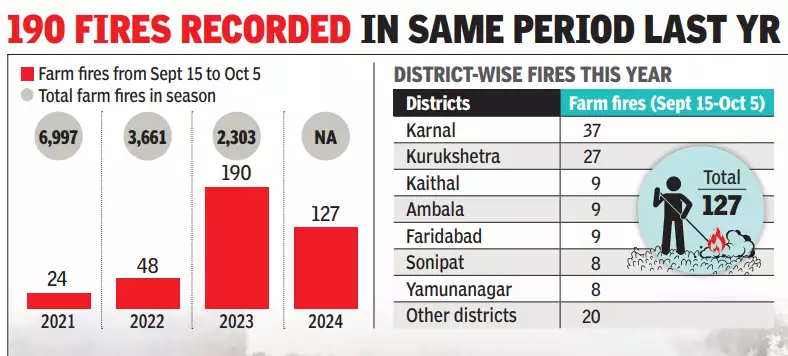Haryana’s Stubble Burning Crisis | 15 Oct 2024
Why in News?
Recently, a report highlights that 84% of Haryana's stubble burning cases are concentrated in just seven districts, exacerbating air pollution and environmental concerns.
Key Points
- Stubble Burning:
- 84% of Haryana’s stubble burning incidents come from seven districts.
- The highest contributors are Fatehabad, Kaithal, Karnal, Jind, Kurukshetra, Ambala, and Yamunanagar.
- These seven districts account for 1,343 of the total 1,595 farm fire incidents recorded in the current season.
- Environmental Impact:
- Stubble burning is a significant contributor to air pollution in Haryana and the Delhi-NCR region.
- The smoke from these fires exacerbates health issues and worsens the already deteriorating air quality during the winter months.
- Government Efforts:
- The Haryana government has introduced various initiatives to discourage stubble burning, including promoting alternatives like crop residue management equipment.
- Fines and incentives have been implemented to motivate farmers to adopt eco-friendly methods of disposing of crop stubble.
- Challenges Faced by Farmers:
- Many farmers continue to burn stubble due to the high costs associated with alternative methods and the limited availability of machinery.
- The short window between harvesting and sowing the next crop puts pressure on farmers, leading them to opt for the quickest solution, i.e., burning the stubble.
- Policy and Enforcement:
- Enforcement of anti-burning laws remains a challenge, despite penalties being in place for violators.
- The government has encouraged the use of Happy Seeder machines, but their adoption has been slow.

